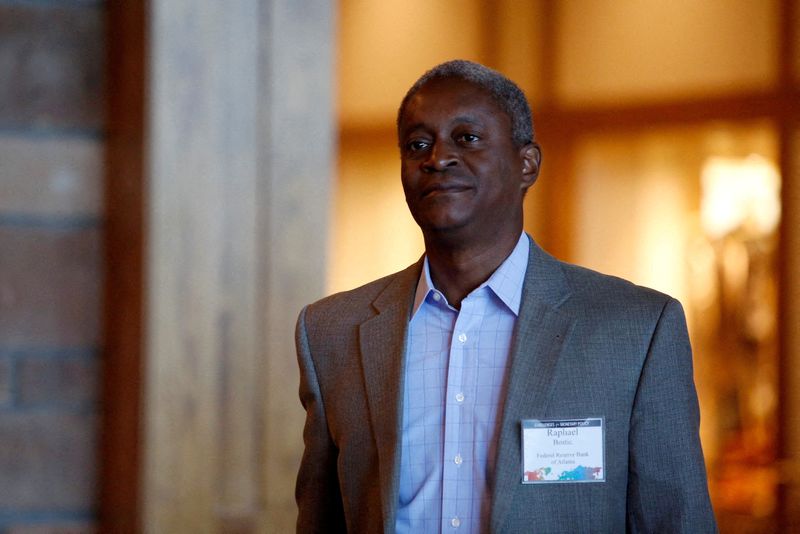By Ann Saphir
(Reuters) -Atlanta Federal Reserve Bank President Raphael Bostic on Friday made the case for patient reductions in the central bank's policy rate to somewhere between 3% and 3.5% by the end of next year, a pace that would get inflation down to its 2% target by then and keep the U.S. economy out of recession. "I'm not in a rush to get to neutral," Bostic told the Mississippi Council on Economic Education Forum on American Enterprise in Jackson, Mississippi. "We must get inflation back to our 2% target; I don't want us to get to a place where inflation stalls out because we haven't been restrictive for long enough, so I'm going to be patient."
At the same time, he said, he envisions further cuts to the Fed's target for short-term borrowing costs, now in the 4.75%-5.00% range.
"If the economy continues to evolve as it does — if inflation continues to fall, labor markets remain robust, and we still see positive production — we will be able to continue on the path back to neutral," he said.
A neutral Fed policy rate — where borrowing costs neither stimulate nor restrict economic growth — is probably in the 3% to 3.5% range, he said. Inflation, currently at 2.2% by the Fed's preferred measure, will likely get to the Fed's 2% target toward the end of 2025, and "that should be sort of the timetable for when we should get to neutral," he said.
Financial markets are currently pricing in two quarter-point interest rate cuts before the end of the year and further reductions next year, likely bringing the policy rate to a 3.25%-3.5% range by September 2025.
The Fed reduced its policy rate by a bigger-than-expected half-of-a-percentage point last month to keep borrowing costs from cooling the labor market too sharply. Since then, readings on the job market have come in stronger than expected, with monthly job growth accelerating and the unemployment rate ticking down to 4.1%.

Bostic has said he expects only a single quarter-point cut over the last two Fed meetings of the year.
"A recession has never been in my outlook," Bostic said. "I've always felt that there was enough momentum in this economy to absorb the restrictiveness of our policy and drive inflation back down to its 2% target. I'm grateful that that's been playing out so well. But the job is not done."